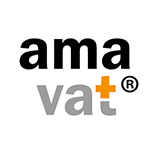New European Union Dispute Resolution Rules Now In Force

New European Union Dispute Resolution Rules In Force
From the 1st July the European Union’s new directive on tax dispute resolution mechanisms entered into force.
These new rules aim to ensure quicker and more effective resolution on tax disputes between EU Member States and will try and offer greater certainty to businesses and individuals experiencing double taxation issues. The EU estimates that there are 2,000 such disputes incomplete in the EU, 900 of which are over 2 years old.
This ruling relates to complaints submitted from 1st July, 2019, and concerns questions of dispute in matters of income or capital earned in a tax year commencing on or after 1st January, 2018. The relevant authorities can also reach agreement to apply the ruling to any compliant preceding to that day or to earlier tax years.
Under this revised system, taxpayers facing disagreements that arise from bilateral dual agreements that provide for the removal of double taxation will be able to initiate a shared agreement procedure. These Member States affected will endeavour to resolve the dispute amicably within two years.
If a solution cannot be found within this two-year period, the taxpayer will be able to request the setting up of an Advisory Commission to provide a judgement. If the Member States in question fail to act, the taxpayer can bring an action before the states National Court.
This Advisory Commission need to deliver a judgement within six months, which the Member States concerned must carry out unless they reach agreement on another solution within the six months following the judgement. These Member States will be required to inform the taxpayer and issue the full final decision or an abstract. If this decision is not executed, the taxpayer having accepted the final decision may seek to put in force its implementation before the national courts.
“A fair and efficient tax system in the EU should also ensure that the same revenue is not taxed twice by two different member states. When that happens, the problem should be solved swiftly and efficiently.” said the Tax Commissioner Mr Pierre Moscovici.
He also goes on to say, “Companies, in particular small businesses, and individuals that may be experiencing cash flow problems as a result of double taxation will see their rights considerably enhanced. They can now be more certain that their tax matters will be resolved by the relevant judicial authorities in an acceptable and predictable timeframe, instead of dragging on for years.”
Extensive Intrastat Changes Across Europe
You will find in our VAT Filing & Compliance section on our website, Intrastat Reporting is a monthly requirement for companies or entrepreneurs who move goods across EU borders, with these goods being subject to varying thresholds subject to the EU Member State involved. This fundamentally allows governments, and the European Union, to track trade between EU countries for statistical purposes. Yet, it increasingly is being used to check on potential VAT fraud, which is rising throughout the region.
Intrastat is in addition to the declarations required by the EU for declaring reverse charge VAT and the transfer of goods, an additional filing that reports all EU movements of goods for customs purposes. Like EC Sales Lists, it is distinct from EU VAT returns and reporting process, although created from the same data.
The subsequent countries have made known these changes:
The ‘Arrival Threshold’ into this country has increased to €460,000.00 (this was previously €430,000.00).
The ‘Dispatches Threshold’ out of this country has increased to €280,000.00 (this was previously €260,000.00).
The ‘Arrival Threshold’ into this country has increased to HRK 2,200,000.00 (this was previously HRK 1,900,000.00).
The ‘Dispatches Threshold’ out of this country has increased to HRK 1,200,000.00 (this was previously HRK 1,000,000.00).
The ‘Arrival Threshold’ into this country has increased to €160,000.00 (this was previously €130,000.00).
The ‘Dispatches Threshold’ out of this country will remain the same at €55,000.00.
The ‘Arrival Threshold’ into this country has increased to CZK 12,000,000.00 (this was previously CZK 8,000,000.00).
The ‘Dispatches Threshold’ out of this country has increased to CZK 12,000,000.00 (this was previously CZK 8,000,000.00).
The ‘Arrival Threshold’ into this country has increased to DKK 6,700,000.00 (this was previously DKK 6,200,000.00).
The ‘Dispatches Threshold’ out of this country has increased to DKK 5,000,000.00 (this was previously DKK 4,700,000.00).
The ‘Arrival Threshold’ into this country has increased to €600,000.00 (this was previously €550,000.00).
The ‘Dispatches Threshold’ out of this country has increased to €600,000.00 (this was previously €500,000.00).
The ‘Arrival Threshold’ into this country has decreased to €800,000.00 (this was previously €1,000,000.00).
The ‘Dispatches Threshold’ out of this country has also decreased to €1,000,000.00 (this was previously €1,200,000.00).
The ‘Arrival Threshold’ into this country has increased to PLN 4,000,000.00 (this was previously PLN 3,000,000.00).
The ‘Dispatches Threshold’ out of this country will remain the same at PLN 2,000,000.00.
The ‘Arrival Threshold’ into this country has increased to RON 900,000.00 (this was previously RON 500,000.00).
The ‘Dispatches Threshold’ out of this country will remain the same at RON 900,000.00.
For the full list of EU VAT Rates, the Formats and the Thresholds you can visit here.
amavat® can assist companies or entrepreneurs with Intrastat Filings and VAT returns to ensure complete VAT Compliance.
We will be keeping track of the legislative work and keep you informed of any changes in this respect.
For further information please do not hesitate to contact us here.
The information contained above is of a general nature and does not concern the situation of a specific company. Due to the speed of changes occurring in EU legislation, we kindly ask you to determine, on the date of this information, whether it is still up to date.





